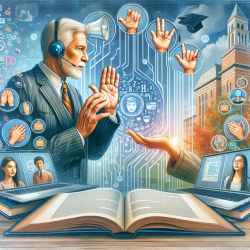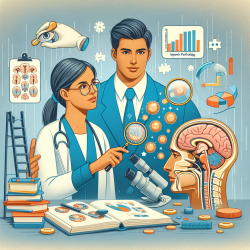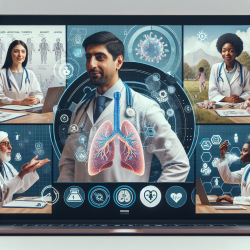The Value of Intergenerational Exchange
Intergenerational exchange refers to the interaction between different age groups, which can occur in various settings, including educational environments. The research presented by Montepare, Farah, and Frazier in the symposium highlights the benefits of involving older adults as teaching allies in career-focused classroom activities. For instance, older adults can serve as job recruiters in mock interviews, providing students with realistic and valuable feedback.Practical Applications for SLP Practitioners
As an SLP practitioner, you can integrate intergenerational exchange into your practice in several ways:- Mock Interviews: Collaborate with older adults to conduct mock interviews with students. This can help students develop their communication skills and gain insights from experienced professionals.
- Experiential Learning: Incorporate activities that involve older adults sharing their life experiences and professional journeys. This can provide students with diverse perspectives and enhance their learning experience.
- Community Engagement: Partner with local senior centers or retirement communities to create opportunities for students to interact with older adults. This can foster mutual learning and respect between generations.
Case Study: Dementia Bootcamp
One of the notable programs discussed in the symposium is the Dementia Bootcamp, an online program for high school students. Mastel-Smith, Kimzey, and Garner describe how this program utilized didactic information, experiential activities, presentations by people with dementia, and volunteering at a dementia day program. The focus group findings indicated that this program effectively integrated into a health sciences curriculum and provided students with practical experience in dealing with dementia.Implementing Similar Programs
SLP practitioners can take inspiration from the Dementia Bootcamp to develop similar programs:- Online Workshops: Create online workshops that combine theoretical knowledge with practical activities. Include guest speakers who can share their experiences and insights.
- Volunteering Opportunities: Partner with local organizations to provide students with volunteering opportunities. This hands-on experience can be invaluable in preparing them for their future careers.
- Focus Groups: Conduct focus groups to gather feedback from participants and continuously improve the program. This data-driven approach ensures that the program remains relevant and effective.
Telepractice in SLP
Ghazi-Saidi and McKelvey discuss an innovative experiential learning activity in two core courses of an SLP graduate program. This activity prepares future SLPs to use telepractice to provide cognitive health interventions to community older adults. The use of telepractice is particularly relevant in today's digital age, where remote therapy services are becoming increasingly common.Incorporating Telepractice
To incorporate telepractice into your SLP practice, consider the following steps:- Training and Certification: Ensure that you and your team are adequately trained and certified in telepractice. This includes understanding the technical aspects and ethical considerations.
- Technology Integration: Invest in reliable technology and software that facilitate effective telepractice sessions. Ensure that both practitioners and clients are comfortable using these tools.
- Feedback Mechanisms: Implement mechanisms to gather feedback from clients and continuously improve your telepractice services. This can include surveys, follow-up sessions, and focus groups.
Encouraging Further Research
The findings from the symposium underscore the importance of intergenerational exchange and innovative educational strategies in enhancing career readiness. As a practitioner, staying updated with the latest research and continuously seeking opportunities for professional development is crucial.To read the original research paper, please follow this link: ADVANCING AGE INCLUSIVITY IN HIGHER EDUCATION: INTERGENERATIONAL EXCHANGE AS A PATHWAY TO CAREER READINESS.










